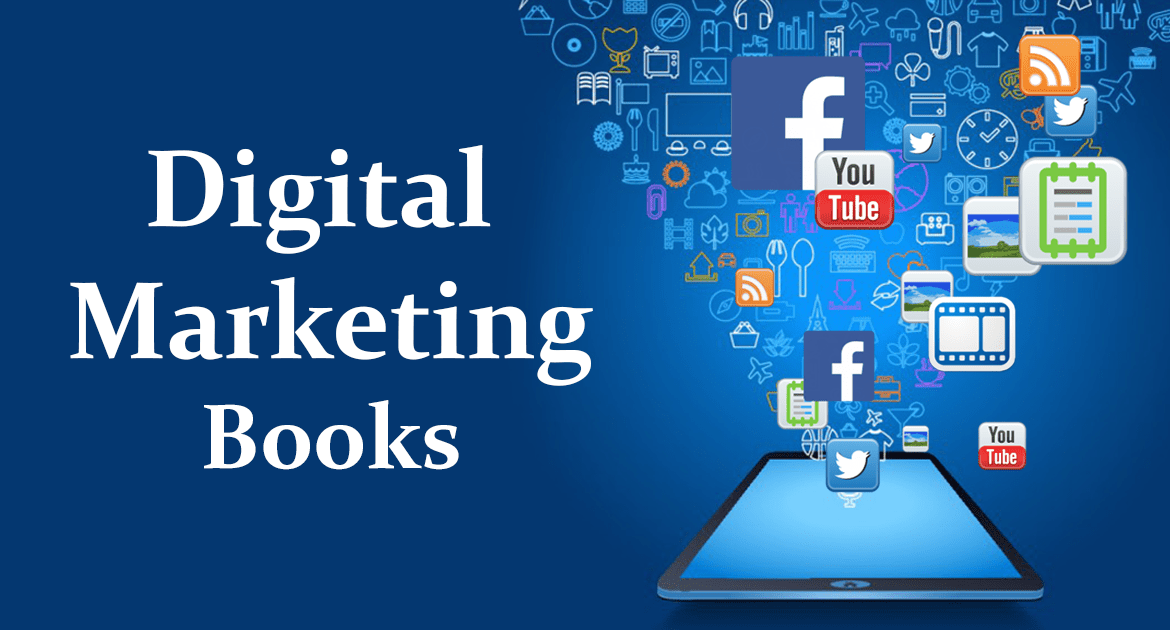Social media marketing refers to the strategic utilization of various social media platforms to promote a product, service, or brand. It involves creating and sharing valuable, relevant, and consistent content to attract and engage a clearly defined audience, ultimately driving profitable customer action.
In today’s digital age, social media marketing has become an indispensable tool for businesses, particularly those operating online. With over 4.7 billion active social media users globally, ignoring this powerful marketing channel can be detrimental to business growth. Social media platforms provide unparalleled opportunities for companies to connect with their target audience, build brand awareness, and drive sales.
For online businesses, social media marketing holds even greater significance. With the majority of their operations conducted digitally, leveraging social media platforms becomes crucial for reaching and engaging potential customers. According to a recent study by Hootsuite, businesses that effectively utilize social media experience a 24% increase in revenue. Moreover, 54% of social media users research products and services on these platforms before making a purchase decision.
By crafting an effective social media marketing strategy, online businesses can expand their reach, foster customer loyalty, and ultimately drive conversions and revenue growth. In this blog post, we will explore the top 15 benefits of social media marketing, providing actionable insights for businesses seeking to maximize their online presence and success.
Top 15 Benefits of Social Media Marketing
Thumbnail Must be Changed,
And, Create an Image From this following Note→
15 Benefits of Social Media Marketing
- Increased brand awareness
- Improved brand loyalty
- Higher conversion rates
- Better customer insights
- Cost-effective marketing
- Enhanced SEO rankings
- Greater marketplace awareness
- Direct customer interaction
- Improved customer service
- Expanded audience reach
- Increased website traffic
- Real-time performance analysis
- Enhanced content distribution
- Stronger community engagement
- Boosted sales opportunities
Img-1 visually represents the numerous advantages that social media marketing can offer to online businesses. It highlights 15 significant benefits, ranging from increased brand recognition and customer loyalty to cost-effective marketing strategies and improved search engine rankings. The illustration features an engaging character actively promoting and leveraging various social media platforms, depicting the direct interaction and engagement opportunities that social media provides. Overall, the image effectively communicates the vast potential of social media marketing for driving business growth and success in the online landscape.
1. Brand Recognition & Awareness
Social media platforms offer unparalleled opportunities for businesses to establish and reinforce their brand identity. Consistent and strategic social media marketing efforts contribute to heightened brand recognition and increased brand awareness among target audiences.
According to Sprout Social, branded social media content receives 7x higher engagement rates than non-branded content, underscoring the power of social media in enhancing brand visibility.
From a marketing perspective, improved brand recognition translates into increased credibility and trust among potential customers. In terms of branding, social media allows businesses to showcase their unique brand personality, values, and messaging consistently across various platforms.
For sales, heightened brand awareness can lead to higher lead generation and conversion rates as customers become more familiar with the brand. Ultimately, effective brand recognition and awareness strategies on social media drive business growth by fostering customer loyalty and advocacy.
2. Audience Insights & Customer Service
Social media platforms provide businesses with invaluable insights into their target audience’s preferences, behaviors, and pain points. By monitoring social media conversations, analyzing user data, and engaging with customers, businesses can gain a deeper understanding of their audience’s needs and tailor their offerings accordingly.
From a marketing standpoint, these insights enable businesses to craft more targeted and effective campaigns, resulting in higher engagement and conversion rates. In terms of customer service, social media allows businesses to promptly address customer inquiries, complaints, and feedback, fostering stronger customer relationships.
According to a Convincely report, businesses that prioritize customer service on social media experience a 34% increase in customer retention rates. Furthermore, leveraging audience insights can inform product development, innovation, and overall business growth strategies.
For more knowledge of customers and audiences consider checking our best digital marketing communities in 2024. Joining these communities will increase industry knowledge.
3. Brand Loyalty & Engagement
Social media marketing offers a powerful platform for businesses to cultivate brand loyalty and foster meaningful customer engagement. By consistently delivering relevant and valuable content, responding to customer inquiries, and fostering a sense of community, businesses can strengthen their emotional connection with their audience.
From a marketing perspective, engaged and loyal customers are more likely to share brand content, amplifying its reach and impact. In terms of branding, social media enables businesses to reinforce their brand identity and values, contributing to stronger brand equity.
For sales, loyal customers are more likely to make repeat purchases and recommend the brand to others, driving revenue growth. According to a study by Fundera, customers acquired through social media have a 60% higher customer lifetime value compared to those acquired through traditional marketing channels.
4. Increased Conversion Rates
Social media marketing can directly impact conversion rates by guiding potential customers through the sales funnel. Through targeted advertising, lead generation campaigns, and strategic content distribution, businesses can effectively nurture leads and encourage desired actions, such as website visits, email signups, or product purchases.
From a marketing perspective, social media platforms offer advanced targeting capabilities, enabling businesses to reach their ideal audience with precision. In terms of sales, social media provides opportunities for personalized interactions and engagement, building trust and credibility with potential customers.
According to a Hootsuite report, social media leads have a 13% higher conversion rate compared to leads from other channels. Ultimately, increased conversion rates contribute to overall business growth and profitability.
5. Long-Term Audience Growth & Brand Equity
Consistent and strategic social media marketing efforts contribute to long-term audience growth and enhanced brand equity. By consistently delivering valuable content, engaging with followers, and leveraging social media advertising, businesses can steadily expand their reach and cultivate a loyal following.
From a marketing perspective, a growing audience translates into increased brand awareness and potential for viral reach. In terms of branding, a strong social media presence and an engaged audience contribute to improved brand perception and equity.
For sales, a larger audience represents a broader pool of potential customers and opportunities for lead generation. According to a study by Sprout Social, businesses with a strong social media presence experience a 24% increase in revenue growth year-over-year.
6. Inbound Traffic & Search Engine Optimization
Social media marketing can significantly contribute to driving inbound traffic to a business’s website and improving its search engine rankings. By sharing high-quality, relevant content and utilizing effective SEO practices, businesses can increase their online visibility and attract potential customers to their digital properties.
From a marketing perspective, increased inbound traffic translates into more opportunities for lead generation and conversions. In terms of branding, a strong online presence and high search engine rankings can enhance brand credibility and authority.
For sales, inbound traffic represents a source of warm leads, as visitors are already familiar with the brand and have expressed interest through their online behavior. According to a study by Brightedge, incorporating social media signals into SEO strategies can improve search engine rankings by up to 80%.
7. Target Audience Identification & Result Tracking
Social media platforms offer powerful tools for businesses to identify and target their ideal audience segments effectively. By leveraging demographic, psychographic, and behavioral data, businesses can create highly targeted campaigns and content tailored to specific audience groups.
From a marketing perspective, precise audience targeting ensures that marketing efforts and budgets are optimized, resulting in higher engagement and return on investment. In terms of branding, targeted content, and messaging contribute to a consistent and cohesive brand experience for specific audience segments.
For sales, targeted campaigns can nurture leads more effectively, leading to higher conversion rates. Additionally, social media analytics tools enable businesses to track campaign performance, measure results, and make data-driven optimizations.
8. Cost-Effectiveness & Customer Satisfaction
Social media marketing can be a highly cost-effective strategy for businesses, especially when compared to traditional marketing channels. With minimal upfront investment and the ability to reach a wide audience, social media offers a compelling return on investment.
From a marketing perspective, the cost-effectiveness of social media allows businesses to allocate resources more efficiently and experiment with different tactics without significant financial risk.
In terms of customer service, social media platforms provide a direct and accessible channel for addressing customer inquiries and concerns promptly, leading to improved customer satisfaction. According to a study by Bain & Company, increasing customer retention rates by just 5% can increase profits by 25% to 95%.
9. Brand Authority & Thought Leadership
Social media marketing presents an opportunity for businesses to establish themselves as industry authorities and thought leaders. By consistently sharing valuable, informative content and engaging in industry conversations, businesses can position themselves as credible and knowledgeable experts in their field.
From a marketing perspective, establishing brand authority can increase trust and credibility among potential customers, leading to higher engagement and conversion rates.
In terms of branding, thought leadership contributes to a strong and differentiated brand identity, setting the business apart from competitors.
For sales, perceived expertise and authority can influence purchasing decisions, as customers are more likely to trust and invest in reputable brands. According to a LinkedIn study, thought leadership content can increase a brand’s perceived credibility by 88%.
10. Attracting New Customers & Improving ROI
Social media marketing provides businesses with the ability to reach and attract new customers beyond their existing customer base. By leveraging targeted advertising, influencer partnerships, and engaging content, businesses can expand their reach and tap into new market segments.
From a marketing perspective, attracting new customers translates into increased brand awareness and potential for growth. In terms of branding, reaching new audiences can strengthen brand recognition and equity.
For sales, new customers represent untapped revenue streams and opportunities for customer lifetime value maximization. According to a report by Sprout Social, businesses that prioritize social media marketing experience a 24% increase in revenue growth year-over-year, highlighting the potential for improved return on investment (ROI).
11. Customer Journey Mapping & Personalization
Social media platforms offer businesses valuable insights into their customers’ journeys, allowing for personalized and tailored experiences. By analyzing social media data and customer interactions, businesses can map out customer touchpoints, preferences, and pain points, enabling them to deliver highly relevant and personalized content, offers, and messaging.
From a marketing perspective, personalization enhances engagement and resonance with target audiences, leading to higher conversion rates and customer loyalty. In terms of branding, personalized experiences contribute to a stronger emotional connection with customers, fostering brand advocacy and loyalty.
For sales, personalized nurturing, and targeted campaigns can significantly improve lead conversion rates and customer lifetime value. According to a study by Epsilon, personalized marketing campaigns can increase conversion rates by up to 208%.
12. Community Building & User-Generated Content
Social media platforms provide a fertile ground for businesses to cultivate thriving online communities around their brands. By encouraging user-generated content, fostering discussions, and facilitating peer-to-peer interactions, businesses can create a sense of belonging and loyalty among their customers.
From a marketing perspective, engaged online communities can amplify brand reach through organic sharing and word-of-mouth marketing. In terms of branding, a strong community contributes to a positive brand image and increased brand equity.
For sales, user-generated content and customer testimonials can influence purchasing decisions and build trust with potential customers. According to a Tint survey, 92% of customers trust user-generated content more than traditional advertising.
13. Deeper Interactions & Relationship Building
Social media enables businesses to engage in deeper, more meaningful interactions with their customers, fostering stronger relationships and customer loyalty. Through personalized responses, open dialogues, and active listening, businesses can build trust, understand customer needs, and address concerns promptly.
From a marketing perspective, deeper customer interactions provide valuable insights for tailoring marketing strategies and improving customer experiences. In terms of branding, strong customer relationships contribute to positive brand perception and advocacy.
For sales, nurturing customer relationships can lead to increased customer lifetime value, repeat business, and referrals. According to a study by Bain & Company, a 5% increase in customer retention can lead to a 25% to 95% increase in profits.
14. Enhancement of Brand Voice, Value & Positioning
Social media platforms serve as powerful channels for businesses to consistently reinforce their brand voice, communicate their unique value proposition, and establish a distinct brand positioning within their industry. By crafting a cohesive brand narrative and messaging across various social media channels, businesses can differentiate themselves from competitors and resonate with their target audience.
From a marketing perspective, a strong and consistent brand voice contributes to increased brand recognition and resonance with target audiences. In terms of branding, clearly articulating brand value and positioning reinforces brand equity and customer loyalty.
For sales, a distinct brand identity and value proposition can influence purchasing decisions and drive customer acquisition. According to a study by Gallup, companies with a strong brand positioning experienced a 27% increase in revenue growth compared to their competitors.
15. Increased Customer Loyalty & Brand Equity
Effective social media marketing strategies can foster increased customer loyalty and contribute to enhanced brand equity. By consistently delivering exceptional customer experiences, addressing customer needs and concerns, and cultivating a sense of community, businesses can strengthen their emotional connection with customers and establish themselves as a trusted and valued brand.
From a marketing perspective, loyal customers are more likely to engage with and share brand content, amplifying its reach and impact. In terms of branding, customer loyalty and brand equity contribute to a positive brand reputation and sustained competitive advantage.
For sales, loyal customers are more likely to make repeat purchases, provide referrals, and advocate for the brand, driving long-term revenue growth. According to a study by Bain & Company, a 5% increase in customer retention can lead to a 25% to 95% increase in profits.
Disadvantages of Not Doing Social Media Marketing
Social media marketing is a massive advantage for marketers and business owners. What about the disadvantages of avoiding social media as a marketing tool?
Thought the journey of digital marketing trainings of Digital Vidya has opened opportunities that didn’t exist for them before.
Here is a list of disadvantages of not doing social media marketing for marketers and business owners.
Disadvantages of Not Doing Social Media Marketing
- Limited brand awareness
- Reduced audience reach
- Decreased customer engagement
- Lower conversion rates
- Weaker brand loyalty
- Missed sales opportunities
- Poor customer insights
- Less competitive edge
- Inefficient marketing efforts
- Diminished SEO performance
Img-2 visually depicts the potential pitfalls and negative consequences that businesses may encounter if they fail to adopt social media marketing strategies. It emphasizes the importance of leveraging social media platforms by showcasing the various disadvantages that can arise from neglecting this critical aspect of modern marketing. The illustration features a disgruntled character overwhelmed by the lack of online presence and engagement, symbolizing the lost opportunities and competitive edge that businesses risk without embracing social media marketing effectively.
Conclusion
“When you interact with customers on a one to one basis on Social Media, it makes them more loyal. Loyal customers spend more with you, stay with you longer and tell their friends about you”– Dan Gingis, Marketing & Customer Experience Executive.
Social media is going to be one of the best friends that not only makes the marketing ambiance interesting, alive and interactive but also helps in ensuring great profits. You can also be a master in Social media Marketing by joining a Social Media Course.
Now, as the article concludes, just go through over-mentioned top 10 benefits of social media and update me in comments if you can suggest what are the benefits of social media marketing according to you.









interesting blog, i agree with you that if we need to promote our brand it is necessary that we do social media marketing of that brand, hence, it helps us to reach the audience and target the field which will be profitable to us.There are lots of benefits if we do marketing of that product.I am fully satisfied with the blog.
“Hi Manish, Your blog is so fascinating, I look forward to read many of your post.
Thank you so much for making me to attention on this. Really appreciate it.”
Thank you Shara,
Such feedback helps us come with such informative and relevant posts.
Do update us how SMM has helped you grow your business.
As a bonus tip, I would suggest you to go through this list of best Social Media Marketing Tools- https://www.digitalvidya.com/blog/blog/top-20-social-media-marketing-smm-tools/
I have to agree with your content. Social media is a very important element in digital marketing. Social platform is a medium in which you can promote your product to appropriate audience. Through social you don’t need to spend huge amounts of money for advertising. Thanks for sharing your valuable information.
Thanks for sharing such great information with us.
Thank You Mukesh
Yes social media is very important factor for the growth of our business and it is one of the most important element of digital marketing to increase brand awareness. Thank you for sharing must needed information.
It is a interesting blog really loved it. we should promote the brands on social media as it will help the business to grow locally and globally. It is a great work. Keep it up!!!!